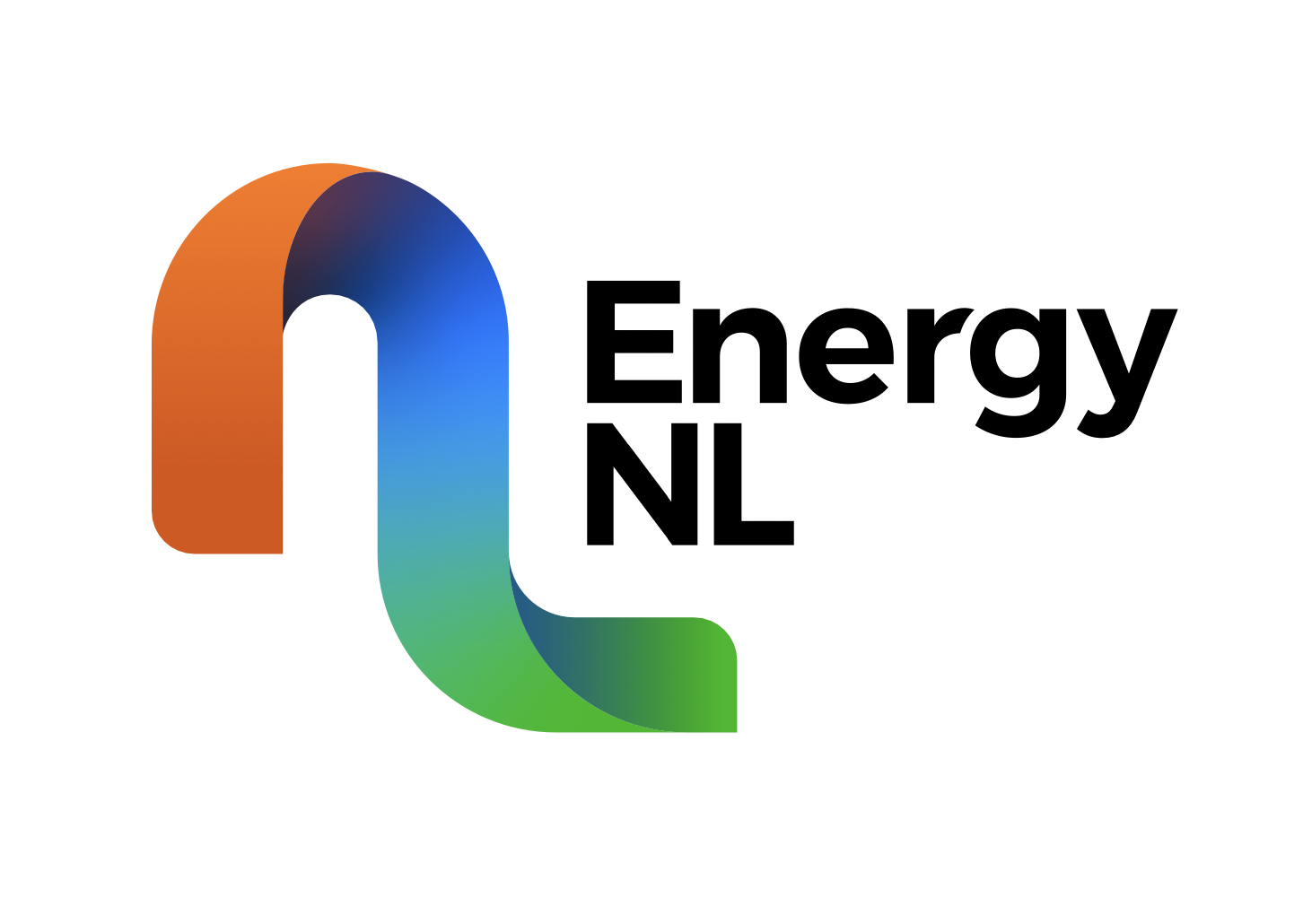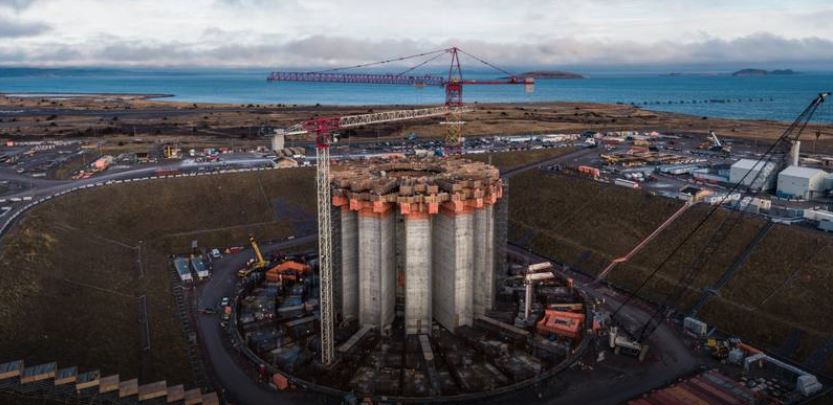Billions of dollars in economic benefits tied to a major offshore oil project are in limbo as its main proponent mulls over how to best proceed in financially uncertain times.
Husky Energy announced Wednesday it will review its West White Rose project in Newfoundland and Labrador. Located in the Jeanne d’Arc Basin approximately 350 kilometres east of the island, the project would have expected peak capacity of 75,000 barrels of oil per day, producing light crude oil.
Construction activity in Argentia and Marystown was suspended in March due to the COVID-19 pandemic.
Jonathan Brown, Husky’s senior vice-president for Atlantic Canada, told The Telegram the review in its current state does not really have a beginning or an end.
“I know that sounds strange, but really the announcement today is about making it clear that the current basis of our planning — which was restarting the project at the beginning of next year — under current circumstances, we cannot do (that), so we have to look at alternatives,” Brown said.Even though the project is 60 per cent complete, Brown admitted it’s conceivable Husky could walk away from the project.
“I think people have to realize that is a possibility, yes,” he said. “It would be a horrible decision to have to take, but at the same time, I’m sure people have experienced it in their own life situations where you’re halfway through something and would dearly love to complete it, but simply can’t afford to do it. You have to recognize that reality.
“That decision would not be one that would be taken in the short term. The first decisions we’re really looking at are whether the project could restart at the beginning of the year, and that’s what has led to this review, or this announcement today. We would then be looking at alternatives and options to complete it on a different schedule.”
Financial factors
Husky’s decision to review the West White Rose project was driven by financial factors and a need to be honest with the company’s shareholders.
“In common with many other companies, Husky had to deal with some very strange economic circumstances in the last several months, and that sucks up a lot of the capacity in our balance sheet — our cash, basically — to manage our way through that,” Brown said. “Now, we find ourselves on the other side of those really acute circumstances of April and May, and we have to revisit what we can do in the near term.”
As a result, Husky is now re-prioritizing its capital projects. Brown says the driving factor is whether investment will pay off and prove to be profitable.
“From that perspective, West White Rose remains a really good proposition, which is why what we’re proposing to the government is an investment,” he said. “But what you also have to concern yourselves with is scale and how long it will be before it can start to provide a return. That expenditure profile has to fit in to what the rest of your business can do.
“At times like this, big projects, which are one or two or three years away from being able to provide a return, are disadvantaged compared with smaller projects, even if they’re less profitable, where the amount of money is more affordable and where it can be fitted into the capacity that the company is going to have as time progresses.”
No small project
The numbers certainly speak to the fact West White Rose is not a small project for Newfoundland and Labrador.
According to figures supplied by Husky, there are currently more than 500 Husky operations jobs in the province, and West White Rose would bring an additional 250 full-time positions. Construction work in Argentia and Marystown has resulted in more than 1,000 unionized jobs, with a further $1.1 billion in work left to be completed. Further expenditures over the life of West White Rose through to 2036 are an estimated $11 billion, and the province would receive more than $3 billion in royalties and taxes.
Brown characterized West White Rose as a vital component to the longevity of Husky’s operations in Atlantic Canada. The White Rose oilfield has been producing since 2005 and is served by the floating production, storage and offloading (FPSO) vessel SeaRose. Brown says SeaRose’s designed lifespan is set to reach its limit in 2028, and it’s due to enter dry dock in 2022.
The company has been in talks with Transport Canada about potentially offering some flexibility on that requirement to enter dry dock, subject to the vessel’s condition. The company may look to make investments to extend the lifespan of the SeaRose to meet the needs of West White Rose.
“The longer we leave it, the harder it gets to restart the project,” Brown said. “There’s a sequence of decisions that will get taken, and we’ll be looking at any alternatives we can to reschedule or to complete later. It just becomes progressively much harder to do it.”
Federal response
Industry advocates have repeatedly called on federal Natural Resources Minister Seamus O’Regan, who also represents a riding in Newfoundland and Labrador, to find a way to support the offshore sector and help jumpstart the industry during a tumultuous period. His department issued a statement attributed to the minister minutes after Husky issued its new release Wednesday morning.
“We are at the table with the province right now, hammering out the concrete steps needed to support the offshore,” O’Regan said in the statement. “Workers and their families are at the centre of all our discussions. Our government has worked every day with the province, industry, unions and investors to sustain the competitiveness of Newfoundland and Labrador’s offshore.”
Brown said he hopes there will be more conversations with both levels of government.
“I think it’s actually going to continue,” he said. “The timing of this is really linked to our need to be transparent with the financial markets and our shareholders about what’s going on.”
He added the timing is also relevant to the project’s schedule. If it were to consider resuming work in Argentia at the beginning of 2021, the company would need to start providing direction to its contractors now, Brown said.
“In the absence of that, we have to be clear what the situation is.”
No surprises
Charlene Johnson, CEO of the Newfoundland and Labrador Oil and Gas Industries Association (Noia), has been among those calling on the federal government to assist the offshore sector. She said she was not surprised by Wednesday’s news, and it only adds to the uncertainty the offshore industry has faced through most of 2020.
“For us, this isn’t just about Husky,” she said. “There’s so much that remains uncertain in our industry. With Bay du Nord and whether or not they’re going to proceed, and Terra Nova FPSO. The exploration that’s been postponed this year and perhaps postponed next year. The drilling that’s suspended at Hibernia … the closure of the (Come By Chance oil) refinery. On and on it goes. We’re not surprised — we’re really frustrated.”
Johnson wants government to offer a solution to help the matter.
“This shouldn’t be the headline today,” she said. “The headline should be that the province is doing further exploration, that projects that were delayed or suspended are back up and running, thousands of people are back to work — and it’s simply not happening. We’re tired of waiting. We’re not sure what the federal government is waiting for.”
Provincial Natural Resources Minister Andrew Parsons said Husky kept the government in the loop on its plan to announce the review. Acknowledging it has been a difficult year for the industry, Parsons said there have been “great discussions” with the company and he expects those conversations will continue.
“I’m never one to sound the alarm bells, but I’ll tell you what — it’s hard to overstate the importance of this project and this operator and what we want to do to make sure that it’s a success.”
Progressive Conservative Leader Ches Crosbie was critical of both the federal and provincial governments. He said Husky’s announcement Wednesday amounts to a public acknowledgement that talks with those governments have reached an impasse.
“What’s at stake here is a future revenue stream for the province of many billions of dollars and hundreds of offshore jobs and onshore jobs — well-paying jobs,” he said. “It’s also symbolic of the neglect that the provincial and federal governments have been treating our offshore industry with.”
—
Source: The Telegram | This text was excerpted from the media outlet cited on September 10, 2020 and is provided to Noia members for information purposes only. Any opinion expressed therein is neither attributable to nor endorsed by Noia.






